Trending Destinations
The world of scuba diving is constantly evolving, with new and exciting destinations emerging each year. In 2024, eco-dive tourism is taking center stage, with divers increasingly drawn to locations that prioritize sustainability and conservation. Conde Nast Traveller highlights this trend, emphasizing the growing desire among divers to make responsible choices that benefit the marine environment.
Top Dive Resorts
For discerning scuba enthusiasts seeking unparalleled underwater experiences combined with luxurious accommodations and exceptional service, choosing the right dive resort is paramount. The following resorts, recognized by industry leaders and discerning travelers alike, consistently garner top ratings and accolades, promising unforgettable diving adventures in 2024:
Wakatobi Dive Resort, Indonesia
Consistently ranked among the world’s best, Wakatobi Dive Resort in Indonesia sets the bar exceptionally high. Divers are captivated by the pristine reefs, vibrant marine life, and exceptional clarity of the water. The resort’s commitment to conservation is evident in the thriving coral gardens and abundant fish populations. With a focus on personalized service, luxurious accommodations, and a dedicated dive team, Wakatobi provides an unparalleled experience for underwater enthusiasts.
Raja Ampat Dive Lodge, Indonesia
Located in the heart of the Coral Triangle, Raja Ampat Dive Lodge offers access to unparalleled marine biodiversity. This region is renowned for its staggering variety of coral species, fish, and invertebrates. The resort provides a comfortable and intimate setting for divers to explore this underwater wonderland, with experienced guides and access to remote and pristine dive sites.
Misool Eco Resort, Indonesia
Sustainability takes center stage at Misool Eco Resort, a secluded paradise in Raja Ampat. The resort has played a pivotal role in establishing a marine protected area, resulting in a remarkable recovery of marine life. Divers can witness firsthand the positive impact of conservation efforts while exploring vibrant reefs, encountering sharks and manta rays, and enjoying the tranquility of this remote and pristine location.
Gili Lankanfushi, Maldives
Luxury and sustainability blend seamlessly at Gili Lankanfushi in the Maldives. This eco-conscious resort offers overwater bungalows with direct access to the turquoise lagoon, providing a serene and exclusive experience. Divers can explore nearby reefs teeming with colorful fish, turtles, and reef sharks, while the resort’s marine biologists offer insights into the delicate balance of this underwater ecosystem.
Four Seasons Landaa Giraavaru, Maldives
Renowned for its impeccable service and breathtaking surroundings, Four Seasons Landaa Giraavaru in the Maldives offers a luxurious escape for diving enthusiasts. The resort’s dive center provides access to world-class dive sites, including vibrant coral reefs, manta ray cleaning stations, and even the opportunity to encounter whale sharks. With expert guides and top-of-the-line equipment, divers can explore the depths of the Indian Ocean in comfort and style.
Emerging Dive Locations
While established dive destinations continue to draw enthusiasts, the allure of the unexplored beckons adventurers seeking new underwater frontiers. Emerging dive locations offer the thrill of discovery, pristine environments, and unique encounters with marine life. In 2024, these destinations are poised to captivate divers seeking something truly extraordinary:
The Blue Road, Turkey
Stretching along the captivating Turkish coastline, The Blue Road project, launched in 2023 by the Eastern Black Sea Development Agency (DOKA), has unveiled a hidden gem for diving enthusiasts. With 43 identified dive points, this region offers a diverse range of underwater landscapes, from shipwrecks teeming with history to vibrant reefs bursting with life. Explore ancient ruins submerged beneath the waves, encounter endemic species unique to the Black Sea, and discover the untamed beauty of Turkey’s underwater realm.
The Azores, Portugal
Rising majestically from the Atlantic Ocean, the Azores, a volcanic archipelago belonging to Portugal, offers an unparalleled diving experience. These islands boast crystal-clear waters, dramatic underwater topography, and a remarkable abundance of marine life. Encounter majestic whales, playful dolphins, and graceful manta rays, all drawn to the nutrient-rich waters surrounding the Azores. Explore submerged volcanic craters, swim alongside schools of pelagic fish, and witness the raw power of nature in this awe-inspiring destination.
The Philippines
Home to an astonishing diversity of marine life, the Philippines is a haven for underwater explorers. With over 7,000 islands, this archipelago offers a kaleidoscope of dive sites, from vibrant coral reefs to dramatic drop-offs. Encounter gentle giants like whale sharks and manta rays, explore World War II shipwrecks, and marvel at the intricate beauty of macro life. The Philippines’ commitment to marine conservation ensures that these underwater treasures will continue to thrive for generations to come.
French Polynesia
Comprising over 100 islands and atolls٫ French Polynesia is synonymous with paradise. Beneath the surface٫ a world of wonder awaits٫ with crystal-clear lagoons٫ vibrant coral gardens٫ and an abundance of marine life. Encounter graceful manta rays٫ playful dolphins٫ and even humpback whales during their migration season. Explore the depths of renowned dive sites like Rangiroa٫ Fakarava٫ and Tikehau٫ each offering a unique glimpse into the underwater tapestry of this South Pacific gem.
Palau
Nestled in the heart of Micronesia, Palau is a diver’s paradise renowned for its pristine marine environment and unique underwater experiences. Explore the iconic Jellyfish Lake, home to millions of stingless jellyfish, or witness the breathtaking spectacle of spawning fish at certain times of the year. Discover the remnants of World War II history in the form of shipwrecks and aircraft, now serving as artificial reefs teeming with marine life. Palau’s commitment to conservation has earned it a reputation as one of the world’s leading destinations for responsible diving.
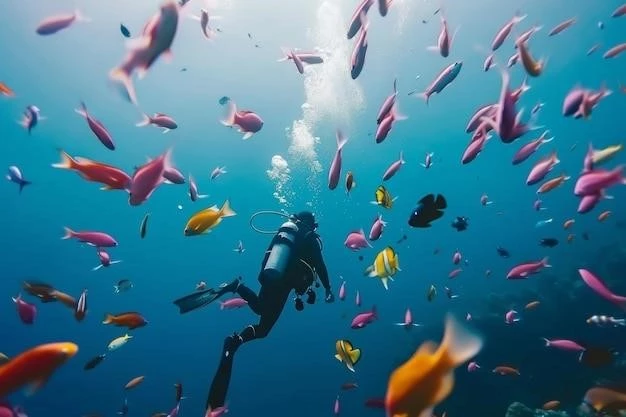
Factors to Consider When Choosing a Dive Destination
Embarking on a scuba diving adventure is an exhilarating experience, but selecting the right destination is crucial for a fulfilling trip. With a myriad of options available, consider these essential factors to ensure an unforgettable underwater journey:
Dive Conditions and Marine Life
Research the prevailing dive conditions, including water temperature, visibility, and currents, to align with your comfort level and experience. Consider the diversity and abundance of marine life, whether you seek vibrant coral reefs, pelagic encounters, or macro wonders. Understanding the marine ecosystem and potential hazards will enhance your enjoyment and safety.
Experience Level
Assess your scuba diving certification and experience level honestly. Choose a destination and dive operators that cater to your skillset, offering appropriate dive sites and guidance. Beginners may prefer calm, shallow reefs, while advanced divers might seek challenging currents or wreck dives. Matching your abilities to the dive environment is paramount for safety and enjoyment.
Budget and Travel Logistics
Determine your budget, considering travel costs, accommodation, dive packages, and additional expenses. Research visa requirements, flight availability, and transportation options to ensure a seamless journey. Balance affordability with your desired level of comfort and convenience.
Sustainability and Eco-Tourism
Prioritize destinations and operators committed to sustainable diving practices. Look for eco-certifications, support for marine conservation initiatives, and responsible waste management. Choose accommodations and tour operators that prioritize environmental responsibility and minimize their impact on the delicate marine ecosystem.
Personal Interests and Preferences
Consider your personal interests beyond diving, such as cultural attractions, historical sites, or culinary experiences. Do you prefer bustling resorts or secluded retreats? Research the destination’s offerings beyond diving to ensure a well-rounded and enjoyable trip.
Health and Safety
Consult your doctor regarding any health considerations and required vaccinations or medications. Ensure you have adequate travel insurance that covers scuba diving activities. Familiarize yourself with emergency procedures and the location of hyperbaric chambers in case of unforeseen circumstances.
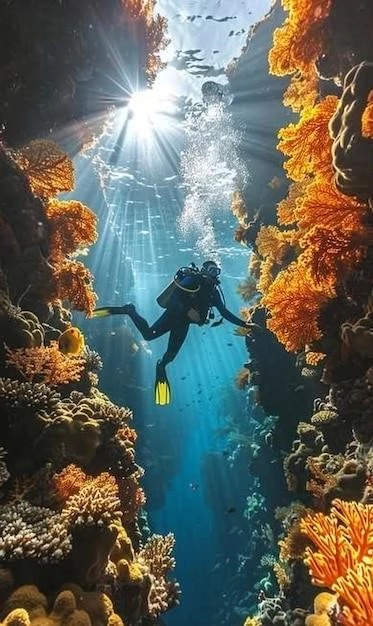
Best Time to Dive
Timing is everything when planning a scuba diving trip. While many destinations offer year-round diving, certain seasons boast optimal conditions, heightened marine activity, and unforgettable encounters; Consider these seasonal variations when selecting the best time to embark on your underwater adventure:
Tropical Destinations
Tropical regions, renowned for their warm waters and vibrant coral reefs, often experience a distinct wet and dry season. Generally, the dry season offers superior visibility, calmer seas, and more predictable weather patterns, making it ideal for scuba diving. However, the wet season may bring plankton blooms, attracting larger marine life like manta rays and whale sharks, offering unique and thrilling encounters.
Temperate Regions
Temperate destinations, with their cooler waters and diverse marine ecosystems, often experience seasonal changes in water temperature, visibility, and marine life. Summer months typically offer warmer waters, better visibility, and increased marine activity, while winter months may bring opportunities for unique cold-water diving experiences.
Migration Patterns
Research the migration patterns of marine life, such as whales, sharks, and rays, to coincide your trip with peak sightings. Many destinations have specific seasons when these magnificent creatures congregate for breeding, feeding, or migration, offering extraordinary encounters for divers.
Weather Considerations
Check weather forecasts and historical data to anticipate potential storms, hurricanes, or monsoons that may impact diving conditions. Flexibility in your travel dates is advantageous, allowing you to adapt to unexpected weather changes and maximize your chances of favorable diving conditions.
Local Events and Festivals
Consider local events, festivals, or holidays that may coincide with your trip, as these can impact accommodation availability, pricing, and diving operations. Researching these factors in advance ensures a seamless and enjoyable experience.
Ultimately, the best time to dive is subjective and depends on your personal preferences, budget, and desired experiences. Thorough research, consultation with dive operators, and flexibility in planning will help you determine the optimal time to embark on an unforgettable underwater journey.
Dive Conditions and Marine Life
Scuba diving offers a captivating glimpse into the underwater world, but understanding the interplay between dive conditions and marine life is essential for a safe and rewarding experience. Consider these factors when researching potential dive destinations:
Water Temperature
Water temperature significantly influences the dive experience, affecting comfort, equipment choices, and marine life encounters. Tropical destinations boast warm waters year-round, often exceeding 80°F (27°C)٫ while temperate regions experience seasonal variations. Divers should choose appropriate wetsuit thickness or drysuits to ensure thermal protection and comfort.
Visibility
Visibility, measured in feet or meters, dictates the clarity of the water and affects the overall dive experience. Factors such as weather patterns, plankton blooms, and water movement influence visibility. Clear waters enhance the enjoyment of vibrant coral reefs, while reduced visibility can add an element of mystery to wreck dives or encounters with larger marine life.
Currents
Ocean currents, driven by tides, winds, and thermohaline circulation, can range from gentle drifts to strong surges. Divers should be aware of prevailing currents, as they can influence dive profiles, air consumption, and the ease of navigating underwater terrain. Experienced divers may seek out areas with currents for exhilarating drift dives.
Marine Life Diversity and Abundance
Research the diversity and abundance of marine life in potential dive destinations to align with your interests. Coral reefs teem with colorful fish, invertebrates, and intricate coral formations, while pelagic environments offer encounters with sharks, rays, and marine mammals. Understanding the local ecosystem and seasonal variations enhances the dive experience.
Potential Hazards
Be aware of potential hazards, such as strong currents, marine life with venomous stings or bites, and sharp coral formations. Respect marine life, maintain buoyancy control to avoid contact, and familiarize yourself with basic first aid and emergency procedures. Diving with a reputable operator and following safety guidelines minimizes risks.
By researching and understanding the dive conditions and marine life in your chosen destination, you can make informed decisions about equipment, dive planning, and potential risks, ensuring a safe and unforgettable underwater adventure.
Cost and Budget
Planning a scuba diving trip involves considering various expenses to ensure it aligns with your budget. Understanding the potential costs associated with travel, accommodation, diving, and additional expenses will help you make informed decisions and avoid financial surprises.
Travel Expenses
Airfare often constitutes a significant portion of the overall cost, varying based on destination, time of year, and booking window. Research flight options, airlines, and potential layovers to find the most cost-effective route. Consider alternative airports or nearby cities that may offer lower fares.
Accommodation options range from budget-friendly hostels and guesthouses to luxurious resorts, each catering to different budgets and preferences. Research various accommodation types, compare prices, and consider factors like proximity to dive sites, amenities, and reviews from fellow divers.
Dive Packages
Many dive operators offer packages that bundle accommodation, diving, and sometimes meals or transportation. These packages can provide cost savings compared to booking services separately. Compare packages from different operators, considering the number of dives included, dive site choices, and additional services offered.
Dive Equipment Rental
If you don’t own scuba diving equipment, rental costs can add up. Inquire about rental rates from dive operators and consider bringing essential items like a mask, snorkel, and fins, as these are often more affordable to purchase than rent.
Additional Expenses
Factor in additional expenses such as meals, drinks, souvenirs, tips, and activities beyond diving. Research local costs, set a daily budget, and track your spending to stay within your financial limits.
Budgeting Tips
Consider traveling during the off-season or shoulder season for potential cost savings on flights and accommodation. Look for discounts or promotions offered by dive operators, airlines, or travel agencies. Pack light to avoid baggage fees and prepare some meals or snacks to reduce dining expenses. By carefully planning and budgeting, you can enjoy an unforgettable scuba diving experience without breaking the bank.
Experience Level
Scuba diving offers a spectrum of experiences, from tranquil shallow reefs to adrenaline-pumping drift dives. Choosing dive destinations and operators that align with your experience level is paramount for safety and enjoyment. Honestly assess your skillset and comfort zone when planning your scuba diving adventure.
Beginner Divers
For those new to scuba diving or with limited experience, destinations with calm, clear waters, and shallow reefs are ideal. Look for dive operators offering beginner-friendly dive sites, small group sizes, and patient, experienced guides. Consider destinations known for their gentle conditions, such as the Maldives, Thailand, or the Caribbean.
Intermediate Divers
Divers with a solid foundation in scuba diving principles and experience in various dive conditions can explore a wider range of destinations. Consider destinations offering a mix of reef dives, wreck dives, and potentially mild currents. Look for dive operators providing opportunities for advanced training, such as nitrox diving or wreck diving certifications.
Advanced Divers
Experienced divers with advanced certifications and a thirst for adventure can seek out more challenging dive environments. Destinations known for strong currents, deep dives, or technical diving opportunities, such as the Galapagos Islands, Micronesia, or the Red Sea, offer thrilling experiences for seasoned divers.
Choosing Dive Operators
Regardless of your experience level, selecting reputable dive operators is crucial. Look for operators with safety certifications, well-maintained equipment, experienced guides, and a commitment to sustainable diving practices. Read reviews from fellow divers, inquire about group sizes, and communicate your experience level openly to ensure a safe and enjoyable diving experience.
Remember, scuba diving is an evolving journey of skill development and experience. Start with destinations and dive operators that match your current abilities and gradually progress to more challenging environments as you gain confidence and expertise.
Travel Logistics
Planning a seamless scuba diving trip involves navigating travel logistics efficiently. From flights and visas to transportation and packing essentials, consider these aspects to ensure a smooth and enjoyable journey to your underwater paradise.
Flights and Visas
Research flight options, airlines, and potential layovers to find the most convenient and cost-effective route to your destination. Consider factors like flight duration, baggage allowances, and arrival and departure times. Check visa requirements well in advance, as some countries require visas upon arrival or pre-arranged electronic travel authorizations. Ensure your passport is valid for at least six months beyond your intended stay.
Transportation
Once you arrive at your destination, research transportation options to reach your chosen accommodation or dive operator. Options may include airport transfers, taxis, rental cars, public transportation, or boat transfers, depending on the location and your preferences. Consider the distances involved, convenience, and cost when making transportation arrangements.
Accommodation
Choose accommodation that aligns with your budget, preferences, and proximity to dive sites. Options range from budget-friendly hostels and guesthouses to luxurious resorts, each offering different amenities and levels of comfort. Book accommodation in advance, especially during peak season, to secure your preferred choices.
Packing Essentials
Pack light and efficiently, focusing on essential scuba diving gear, appropriate clothing for the climate, and personal items. Consider bringing a dive logbook, certification card, reef-safe sunscreen, a hat, sunglasses, and insect repellent. Pack a small first-aid kit with essentials like bandages, antiseptic wipes, and motion sickness medication if needed.
Communication
Ensure you have a reliable way to communicate while traveling, whether it’s an international SIM card, a local phone plan, or access to Wi-Fi. Inform family or friends of your itinerary and keep important documents, such as your passport, visas, and travel insurance information, readily accessible.
By meticulously planning your travel logistics, you can minimize stress, maximize your time exploring your chosen dive destination, and focus on creating unforgettable underwater memories.
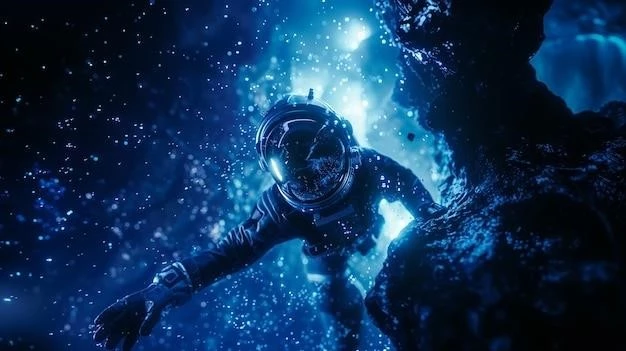
Sustainability and Eco-Tourism
As responsible stewards of the ocean, scuba divers have a vested interest in protecting the fragile marine ecosystems they explore. Eco-tourism, with its emphasis on sustainable practices and minimal environmental impact, has emerged as a guiding principle for conscientious divers seeking to preserve the underwater world for future generations.
Choosing Sustainable Dive Operators
Support dive operators committed to sustainable practices. Look for certifications from organizations like PADI Green Star Award or Scuba Diving Magazine’s Green Divers Alliance, which recognize operators adhering to strict environmental standards. Inquire about their waste management practices, coral reef conservation efforts, and support for local communities.
Respecting Marine Life
Maintain neutral buoyancy to avoid contact with coral reefs or marine life; Refrain from touching, chasing, or harassing marine animals, and avoid stirring up sediment, which can smother corals. Use reef-safe sunscreen and personal care products to minimize chemical pollution.
Reducing Plastic Consumption
Plastic pollution poses a significant threat to marine ecosystems. Minimize your plastic footprint by carrying a reusable water bottle, using refillable toiletries, and refusing single-use plastics like straws and bags. Support dive operators and accommodations that have adopted plastic-reduction policies.
Supporting Local Communities
Choose accommodations, dive operators, and tour providers owned and operated by local communities. This supports the local economy, promotes cultural exchange, and empowers communities to protect their natural resources.
Educating Yourself and Others
Expand your knowledge of marine conservation and sustainable diving practices. Participate in educational programs, workshops, or dive briefings that promote awareness and responsible behavior. Share your experiences and insights with fellow divers to inspire a collective commitment to protecting our oceans.
By embracing sustainable diving practices and supporting eco-tourism initiatives, scuba divers can contribute to the long-term health of marine ecosystems and ensure that these underwater wonders continue to inspire and captivate generations to come.
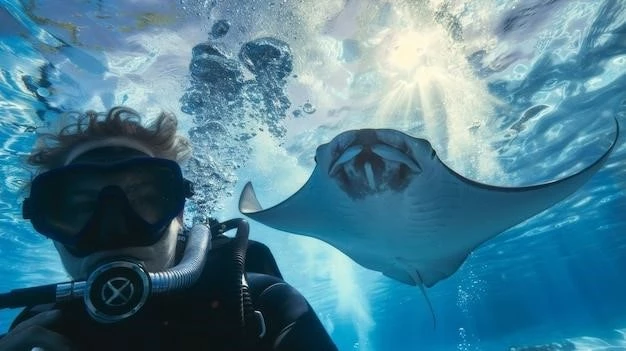
Top Dive Sites for 2024
For scuba diving enthusiasts seeking unparalleled underwater experiences, 2024 promises a plethora of exceptional dive sites teeming with vibrant marine life٫ captivating underwater landscapes٫ and unique encounters. Embark on an unforgettable journey to these top dive destinations:
The Cenotes, Mexico
Dive into a world of wonder in the Yucatan Peninsula’s cenotes, a network of flooded sinkholes offering surreal and ethereal experiences. Sunlight pierces through caverns, illuminating crystal-clear freshwater, while ancient stalactites and stalagmites create an otherworldly ambiance. Explore the Dos Ojos Cenote, with its intricate cave systems and stunning light effects, or venture into the Gran Cenote, home to bats, turtles, and a mesmerizing halocline.
Great Barrier Reef, Australia
Experience the awe-inspiring beauty of the world’s largest coral reef system, home to a kaleidoscope of marine life. Dive among vibrant coral gardens, encounter graceful manta rays, and marvel at the diversity of fish species. Explore iconic sites like Cod Hole, renowned for its resident giant potato cod, or Ribbon Reefs, known for its colorful coral formations and abundance of marine life.
Galapagos Islands, Ecuador
Embark on a life-changing diving adventure in the Galapagos Islands, a UNESCO World Heritage site renowned for its unique and abundant marine life. Encounter marine iguanas, playful sea lions, and schools of hammerhead sharks. Explore Darwin’s Arch, a world-renowned dive site teeming with pelagic species, or visit Wolf Island, known for its thrilling encounters with hammerheads, Galapagos sharks, and even whale sharks.
Raja Ampat, Indonesia
Discover the heart of the Coral Triangle in Raja Ampat, boasting unparalleled marine biodiversity. Dive among vibrant coral reefs, encounter majestic manta rays, and witness the intricate beauty of macro life. Explore Misool Island, renowned for its soft coral gardens and abundant fish life, or venture to Wayag Island, with its iconic karst formations rising from turquoise waters.
Red Sea, Egypt
Experience the underwater wonders of the Red Sea, renowned for its crystal-clear waters, vibrant coral reefs, and historical shipwrecks. Explore the SS Thistlegorm, a World War II shipwreck teeming with marine life, or dive the Elphinstone Reef, known for its steep walls, colorful coral, and encounters with oceanic whitetip sharks.
These exceptional dive sites, each offering a unique blend of adventure, natural beauty, and unforgettable encounters, promise to captivate scuba diving enthusiasts in 2024 and beyond.
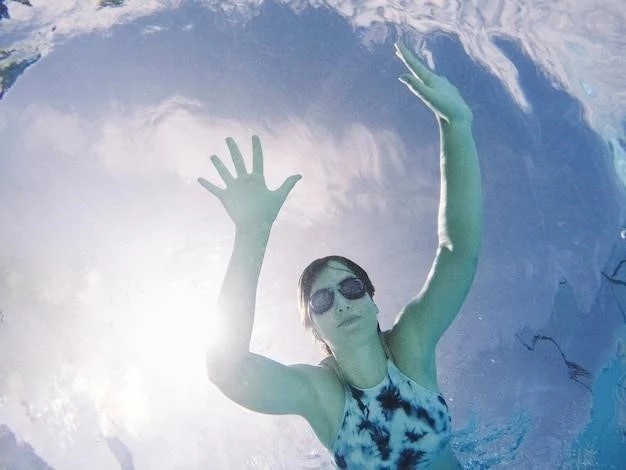
Wreck Diving
For scuba divers with a thirst for adventure and a fascination with history, wreck diving offers a captivating glimpse into the past. Exploring submerged vessels, from sunken warships to scuttled ships, provides a unique perspective on maritime history, marine ecosystems, and the passage of time. Here’s a glimpse into the allure of wreck diving:
Historical Significance
Wrecks serve as underwater time capsules, preserving remnants of bygone eras. Exploring their decks, cabins, and cargo holds offers a tangible connection to historical events, maritime trade, and the lives of those who sailed aboard. Each wreck has a story to tell, and divers become underwater detectives, piecing together clues to unravel their mysteries.
Artificial Reefs and Marine Life
Over time, shipwrecks transform into artificial reefs, providing a substrate for coral growth and attracting a diverse array of marine life. Fish seek shelter within their hulls, invertebrates encrust their surfaces, and larger predators patrol their perimeters, creating thriving ecosystems teeming with activity.
Technical Challenges and Considerations
Wreck diving often presents unique challenges, requiring specialized training and equipment. Divers must possess excellent buoyancy control to avoid disturbing fragile structures or stirring up sediment. Penetration diving, exploring interior compartments, demands additional training, specialized equipment, and meticulous planning.
Respectful Exploration
When wreck diving, it’s crucial to treat these sites with respect and reverence. Divers should avoid disturbing artifacts, refrain from removing anything from the wreck, and follow responsible diving practices to preserve these historical and ecological treasures for future generations.
Notable Wreck Dive Destinations
From the SS Thistlegorm in the Red Sea, teeming with wartime cargo, to the USS Liberty in Tulamben, Bali, adorned with vibrant coral growth, wreck diving destinations worldwide offer a captivating blend of history, adventure, and marine life encounters. Research destinations and dive operators specializing in wreck diving, ensuring they prioritize safety, conservation, and responsible exploration.
Cave Diving
Cave diving is a specialized and demanding branch of scuba diving that beckons adventurers into the depths of underwater cave systems. Characterized by its surreal beauty, technical challenges, and element of exploration, cave diving requires specialized training, equipment, and a deep respect for the unique environment it encompasses.
A Realm of Darkness and Light
Cave diving unveils a world of ethereal beauty, where darkness reigns supreme, punctuated by beams of light filtering through cracks and crevices. Stalactites and stalagmites, formed over millennia by dripping water, create breathtaking formations, while crystal-clear freshwater pools reflect the play of light, casting intricate shadows and illuminating hidden passages.
Technical Expertise and Equipment
Cave diving demands a high level of technical expertise and specialized equipment. Divers must be proficient in buoyancy control, navigation, and gas management, as well as proficient in using specialized gear such as redundant air sources, powerful lights, and guidelines for navigation.
Specialized Training
Cave diving requires specialized training beyond recreational scuba diving certifications. Divers must undergo rigorous courses that emphasize cave environment awareness, line laying and following techniques, gas management protocols, and emergency procedures specific to cave diving.
Respect for a Fragile Environment
Cave ecosystems are fragile and easily disturbed. Divers must adhere to strict buoyancy control, avoid contact with formations, and minimize sediment disturbance. Respect for the cave environment is paramount to preserve its pristine beauty and delicate balance.
Notable Cave Diving Destinations
From the cenotes of Mexico’s Yucatan Peninsula, with their intricate cave systems and crystal-clear freshwater, to the underwater caves of Florida’s springs, offering glimpses into ancient geological formations, cave diving destinations worldwide beckon adventurers seeking to explore the hidden realms beneath the surface.










